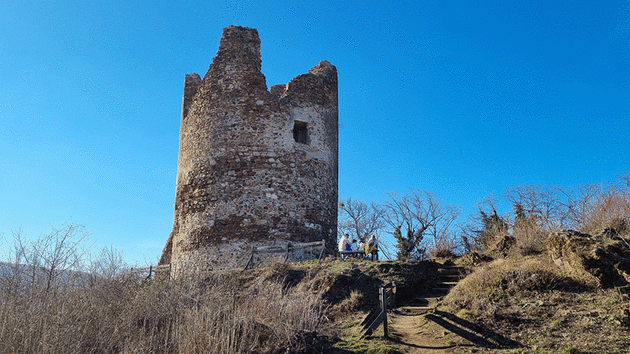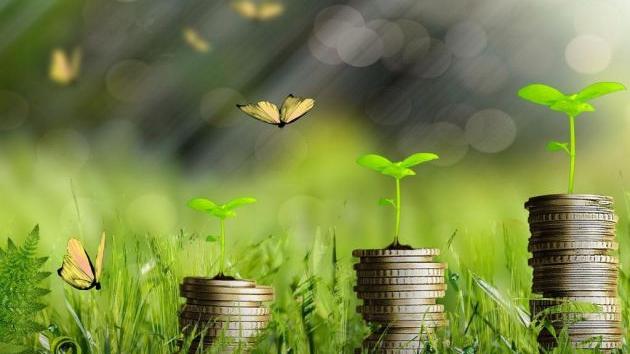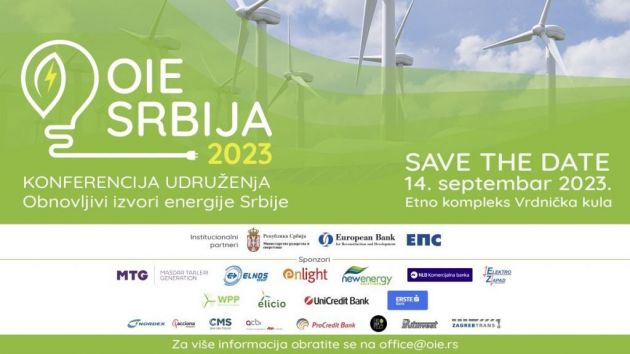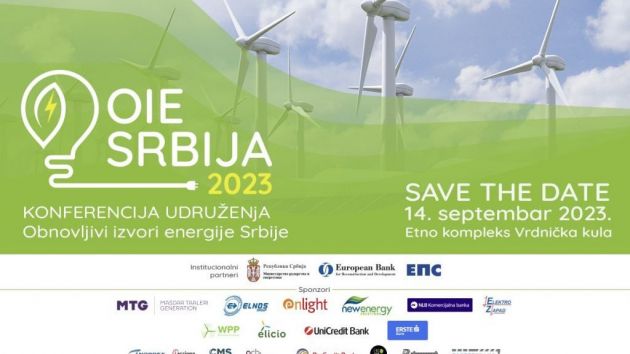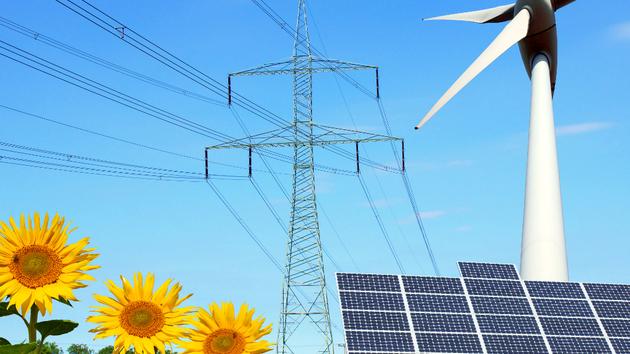RES Serbia 2023 Conference Begins – Serbia After the Auctions and Europe After the Energy Crisis
Source: eKapija
 Thursday, 14.09.2023.
Thursday, 14.09.2023.
 15:01
15:01
 Thursday, 14.09.2023.
Thursday, 14.09.2023.
 15:01
15:01
(Photo: Printscreen/Konferencija OIE Srbija)

This year’s conference is held under the working title “Serbia After the Auctions”, and the representatives of green energy of Serbia and the region were welcomed ahead of the five thematic panels by the president of the Managing Board of RES Serbia, Milos Colic, the acting CEO of EPS, Dusan Zivkovic, the EBRD regional director for the Western Balkans, Matteo Colangeli, and the minister of mining and energy of the Republic of Serbia, Dubravka Djedovic Handanovic.
The minister pointed out at the opening of the conference that investments in RES were important for a greater energy independence and security, but that they should also be one of the instigators of economic growth, investments and employment rate increase.
– When we look back on a period of nearly a year, we can say that we have made important steps toward accelerating the development of the RES sector, while having that development be set on good foundations. In six months, we prepared and adopted amendments to the Law on the Use of RES, so as to enable the further development of RES and to at the same time have system stability. We have also adopted bylaws and carried out the first auctions for market premiums, the biggest ones to be carried out simultaneously in our region according to the European model. The auctions secured more than EUR 1 billion in new investments, nine new power plants with a capacity of over 700 MW, whereby the existing capacities from RES will double. Through the bidding, a price nearly twice as low as the market price was achieved, which means additional income for the state, that is, the investors will pay the price difference to the state. On that basis, according to long-term price projections, the state will have an income of EUR 12 to 28 million a year. On the other hand, the investors got the opportunity to build new capacities, along with a mechanism which protects them in case the prices drop below a certain level, whereas the citizens will have more clean energy sources, a healthier living environment and less CO2 emission – the minister emphasized.
She invited the interested investors to use the potential which exists in Serbia and to be part of a big investment cycle in energy, in which the total value of the projects amounts to around EUR 15 billion.
– The three-year plan of the system of RES incentives entails us getting a new 1,300 MW from RES in three years. The energy transition is a job and a task for us all and it can only succeed if everybody – the state, the investors, the energy companies, works in the same direction – Djedovic Handanovic pointed out.
The situation in the RES sector in Serbia, the region and Europe
Judging by the first panel, whose topic was the situation in the RES sector in Serbia, the region and Europe, the overall conclusion is that, in this field, even with all the challenges that they are facing, our country and the states in the region are on the right path.
(Photo: Pixabay.com/Pexels)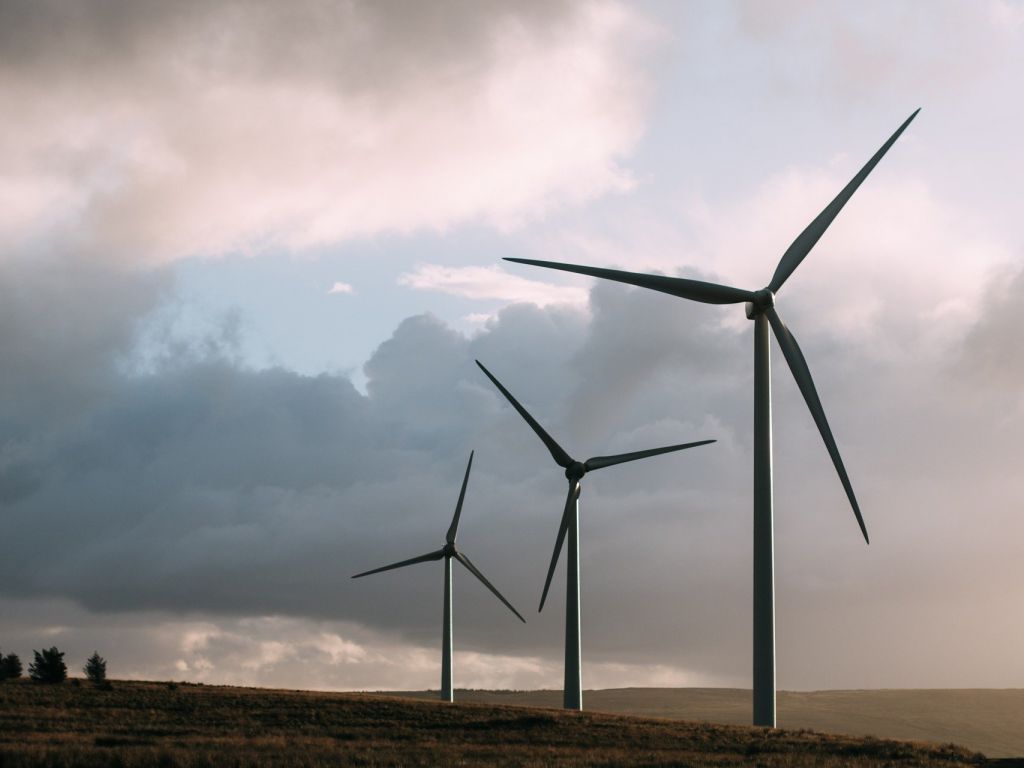

– I am impressed with your engagement, how you managed to overcome internal obstructions. At the Energy Community, we are very interested in your feedback. However, it clear that we will have to work together in order to be better connected – Buschle pointed out and emphasized the vigor that the auctions in Serbia and the region had brought, but also the importance of the national and European energy plans, which should focus on RES and decarbonization.
Buschle also emphasized that, regarding RES, it was important to pay attention about the regulations and the legislation, because they were the framework for RES and system stability, and added that the discussions of the Energy Community with the governments were certainly lively.
– I believe that, after so many years of uncertainty, we have come to the point of no return when it comes to the energy transition, especially when it comes to those who should implement it, those who deal with RES – Buschle emphasized.
The panelists gathered at the first panel also mentioned the challenges that the energy sector had been facing in the preceding 12 months, not just in the region, but also in the rest of Europe – the crisis in Ukraine, the growth of interest rates, the growth of prices – and noted that that this had forced all countries, including Serbia, to turn more toward the green transition.
Matteo Colangeli, the EBRD regional director for the Western Balkans, reminded that the bank played the key role in setting up the regulatory framework for auctions.
– We are very satisfied with the first auction in Serbia. From our perspective, it was the biggest one in the region, and those were great, mature projects. As for the prices, there was certainly competition there, there were offers below the projected price, which is a great sign. The wind auction was very successful, the solar one slightly less so. Solar energy has potential as well, so maybe some future ones end up being as successful as this wind energy auction. We have expressed a readiness to continue supporting a second auction, whenever it takes place. We hope that Serbia will find good ways for the future solar energy auctions as well – Colangeli said.
The panelists reminded that the preparation for the auction had taken three years, that the process had not been simple, and reminded of similar examples from the region, such as Albania and Croatia.
– The auction we had in Croatia, I believe we also needed around three years for it in order to regulate everything with bylaws. Initially, there was no readiness for such projects, there were not enough projects even, the price was too low, and the lack of success was also noticeable in terms of the expected number of megawatts. It was not attractive to investors, but now we have questionnaires for them in order to determine the quotas, as well as the prices per megawatt. That is why I believe that these conferences are important, the economy has to speak loudly, to say what its needs are, and the state needs to be active too – pointed out Maja Pokrovac, the director of RES Croatia.
Walburga Hemetsberger, the CEO of SolarPower Europe, pointed out that it was very important for everybody dealing with RES to join forces. As she said, the development of solar energy has accelerated in Europe and the past two years, compared to the previous ones, are breaking records in the production of this energy. She said that she had no crystal ball regarding 2050, but that it was clear that, by that time, the share of solar energy would increase considerably in terms of percentages. Hemetsberger also emphasized that there were certainly multiple challenges, such as network operators, the changing of the mindset regarding the integration of RES. She added that Serbia could be a big player in this field.
(Photo: Pixabay / Bru-nO)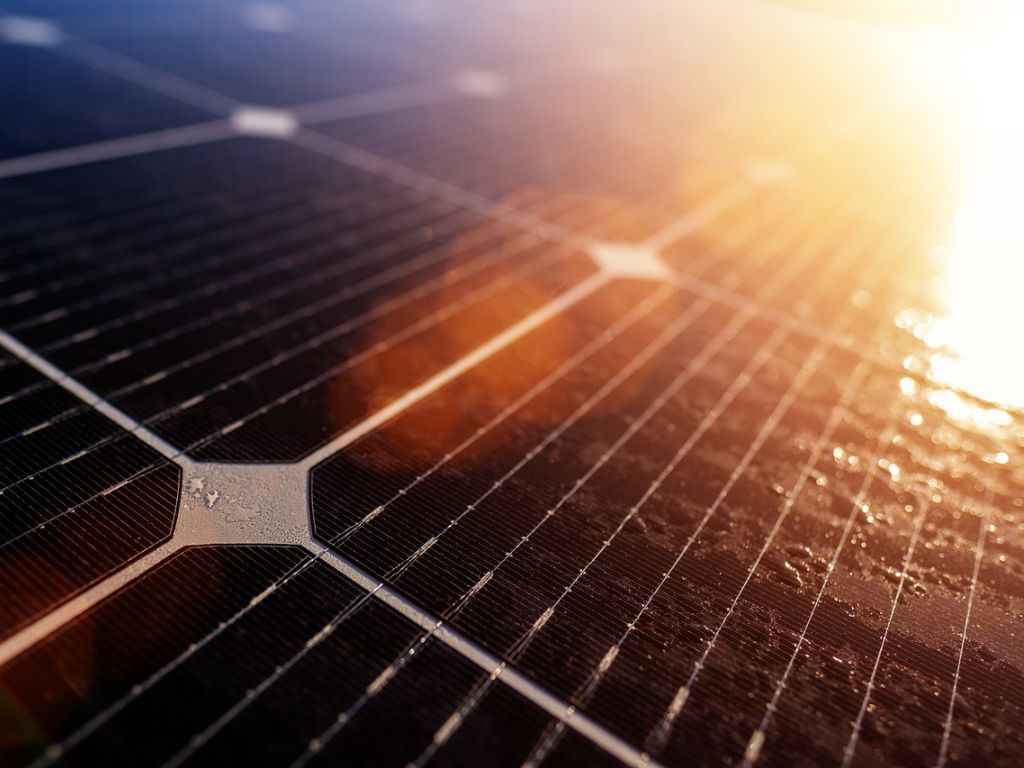

– We are complementary with investment banks, including the EBRD, especially when it comes to big projects. However, we have mostly financed the public sector. In the past, the problem was that people from the public sector were less dedicated to decarbonization. However, it is clear that, after COVID and the war in Ukraine, the scenario has changed, that it has all pushed forward the strategy of decarbonization – Bragonzi said.
EPS transformation and aid from investment banks
The panelists also talked about the aid of investment banks to state companies, such as Elektroprivreda Srbije, and emphasized that it had to do with the overall approach and that something like that had been done in North Macedonia as well.
It was pointed out that there was a desire to support the liquidity of state companies in the time of crisis, but that, on the other hand, they were expected to better manage RES and decarbonization. For decades, as said, there has been a total dependence on hydro energy, fossil fuels and coal, we have the consequences of tolerating energy waste, grid losses, for too long, and the fact that the real price has not been paid. That is why it is important to inspect the old models and to re-examine the price. The conclusion is that the Serbian government is very dedicated when it comes to these reforms, that it has understanding and the will to agree a reform package. This entails auctions, a national climate action plan and the eschewing of fossil fuels by 2050.
U blizini:
Companies:
 Vlada Republike Srbije
Vlada Republike Srbije
 Ministarstvo rudarstva i energetike Republike Srbije
Ministarstvo rudarstva i energetike Republike Srbije
 Evropska investiciona banka EIB
Evropska investiciona banka EIB
 EBRD Evropska banka za obnovu i razvoj Beograd
EBRD Evropska banka za obnovu i razvoj Beograd
 Obnovljivi izvori energije Srbije
Obnovljivi izvori energije Srbije
Tags:
Government of Serbia
Ministry of Mining and Energy of Serbia
SolarPower Europe
European Investment Bank
European Bank for Reconstruction and Development
Energy Community Secretariat
Elektroprivreda Srbije
RES Serbia
RES Croatia
Alessandro Bragonzi
Matteo Colangeli
Dirk Buschle
Dubravka Djedovic Handanovic
Maja Pokrovac
Walburga Hemetsberger
renewable energy sources
energy transition
wind auctions
RES
Comments
Your comment
Most Important News
Full information is available only to commercial users-subscribers and it is necessary to log in.
Follow the news, tenders, grants, legal regulations and reports on our portal.
Registracija na eKapiji vam omogućava pristup potpunim informacijama i dnevnom biltenu
Naš dnevni ekonomski bilten će stizati na vašu mejl adresu krajem svakog radnog dana. Bilteni su personalizovani prema interesovanjima svakog korisnika zasebno,
uz konsultacije sa našim ekspertima.


 Izdanje Srbija
Izdanje Srbija Serbische Ausgabe
Serbische Ausgabe Izdanje BiH
Izdanje BiH Izdanje Crna Gora
Izdanje Crna Gora


 News
News







